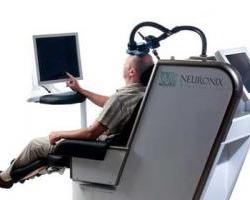There may finally be a treatment for Alzheimer’s disease. A new technology using focused computer brain exercises could be the new hope for Alheimer’s patients and their families.
How the NeuroAD System works
The new computer program, the NeuroAD System, works by having patients solve challenging computer exercises ranging from identifying colors, shapes, letters and animals to solving memory games. At the same time, the corresponding regions of the brain – those responsible for memory and learning – receive electromagnetic stimulation, reactivating brain cell activity.
An effective combination
The work of the brain combined with external stimulation works better together than either does separately. At Harvard University, preliminary results of a recent study are promising.
This follows the positive statistical and clinical results from initial studies in Israel. Not only did the system stop patients’ symptoms from deteriorating, but also, in some cases, it actually improved patents’ cognitive performance to a greater extent than any currently available treatment.
Completely new and different, safe and noninvasive
“It is completely new and different approach, safe, noninvasive and painless,” explained Professor of Neurology Alvaro Pascual-Leone of Harvard medical School, who directed the trial. “Tests have shown significant improvement of cognitive functions. As a result, patients’ daily activities such as taking care of themselves, speaking and even recognizing their loved ones have improved dramatically.”
Being used in Europe, within a few years in the US
“Wherever we go, physicians are eager to hear about this new technology because little else is available to help patients,” said Eyal Baror, CEO of Israel-based Neuronix, the company behind the NeuroAD system. “NeuroAD is CE certified, which means centers in Europe are using the device to great success. We are also aiming at FDA approval within the coming years. It may be a real game-changer for the management of Alzheimer’s disease.”
Source: MedicalNewsToday, Harvard Medical School








